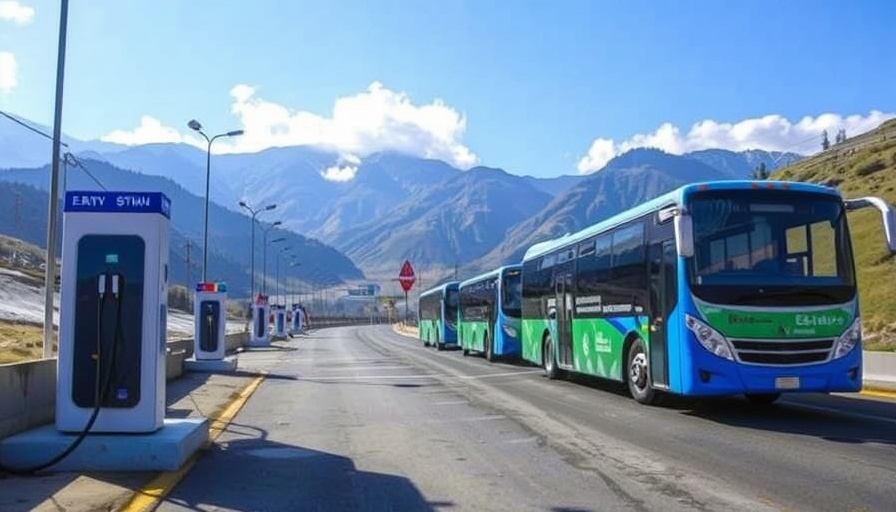
Himachal Pradesh's Green Mobility Initiative: A Game Changer for EVs
In a significant step towards sustainability, Himachal Pradesh, a northern state of India, has embarked on an ambitious plan to facilitate electric vehicle (EV) adoption through a groundbreaking project involving the installation of 402 charging stations and the procurement of 297 electric buses. This initiative is poised to reshape public transportation in the region, making it cleaner and more efficient.
Establishing a Robust Charging Infrastructure
The newly commissioned charging stations will primarily be situated at various government facilities, such as Public Works Department (PWD) rest houses and circuit houses. Specifically, 252 stations will be integrated within PWD facilities, while 100 will be stationed at the Forest Department's branches. The strategic placement of these stations across the state aims to create a seamless and accessible EV charging network for public service vehicles.
The Chief Minister of Himachal Pradesh, Thakur Sukhvinder Singh Sukhu, emphasized the importance of this project, stating that it is aimed at bolstering government adoption of EVs and supporting sustainable transportation practices that contribute to environmental conservation. This initiative is not only a commitment to enhancing public transport but also reflects a broader trend toward greener urban mobility.
Electric Buses: The Future of Public Transport
In addition to the charging stations, the Himachal Road Transport Corporation (HRTC) is set to introduce 297 electric buses manufactured by Olectra Greentech. This substantial investment, valued at approximately 4.24 billion rupees (around 44 million euros), marks a significant transition in public transport. The initiative is expected to enhance air quality and offer citizens a modern, sustainable commuting option.
Expanding Beyond Government Use
The move towards electric mobility also includes provisions for private sector engagement. Himachal Pradesh Tourism Development Corporation (HPTDC) plans to install charging stations at 65 hotels, beginning with 11 installations in its initial phase. This approach not only promotes green energy consumption among government facilities but also encourages private establishments to adopt EV-friendly practices.
Green Corridors and Future Development
Himachal Pradesh has identified and designated six highways as green corridors, confirming its commitment to sustainable transportation. The government is actively working on installing additional charging stations at fuel stations, other government premises, and private hospitality establishments. This extensive web of charging points aims to alleviate range anxiety for EV users, paving the way for wider adoption across the state.
The Broader Picture: Impact on the Environment and Economy
Transitioning to electric buses and building an EV charging infrastructure has far-reaching implications for both the environment and the economy. As of now, Himachal Pradesh has registered nearly 5,000 EVs, and the government mandates all departments to integrate electric vehicles into their fleets, further accelerating this momentum.
Such initiatives not only serve to reduce dependency on fossil fuels but also promote job creation in the green technology sector. This synergy between environmental consciousness and economic development marks a significant shift in how Himachal Pradesh approaches future infrastructure and urban planning.
A Call to Action: Embrace Electric Mobility
As Himachal Pradesh takes bold steps to establish itself as a pioneer in green mobility, stakeholders—ranging from government officials to private businesses—are encouraged to participate in this transformative journey. The integration of EVs into daily commuting and the dedication to building a robust support infrastructure present a significant opportunity for residents and businesses alike. By embracing electric mobility, we contribute to a greener, more sustainable future.
 Add Row
Add Row  Add
Add 



Write A Comment